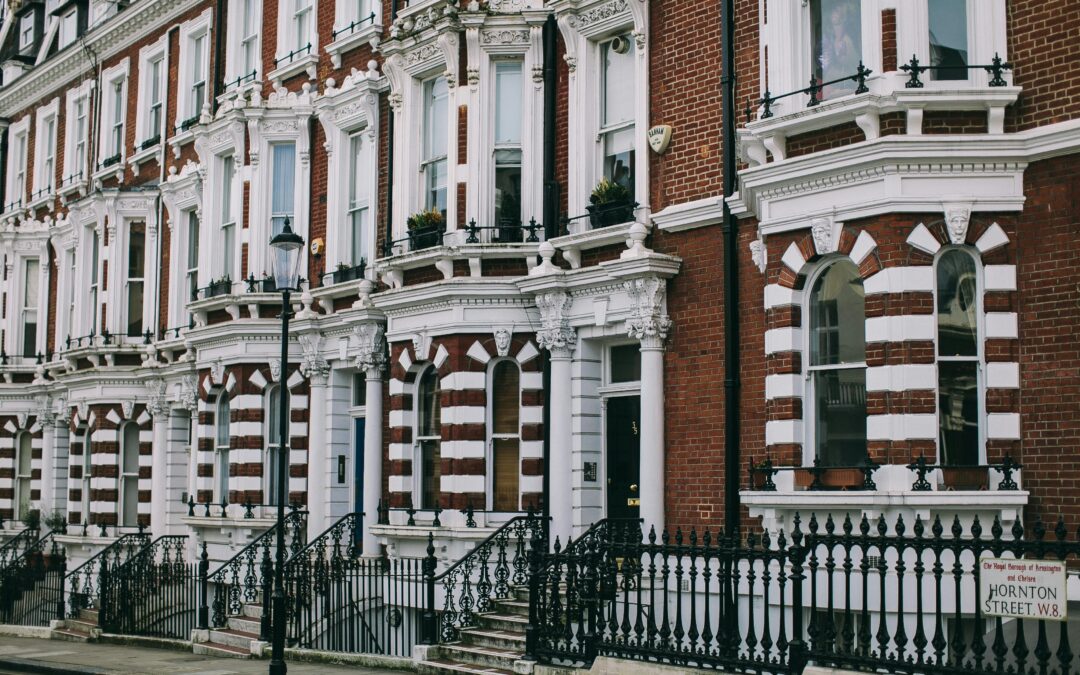Key Takeaways
- US nationals can purchase property in the UK, but the process involves additional complexities compared to UK residents.
- Specialist mortgage brokers can simplify the process and provide access to suitable lenders.
- Non-residents may face higher interest rates and additional documentation requirements.
- Understanding tax implications and legal considerations is crucial for a smooth transaction.
- Pre-approval for a mortgage is essential to streamline the property-buying journey.
Can US Nationals Buy Property in the UK?
Yes, US nationals can buy property in the UK. Whether you’re looking to invest, purchase a second home, or move to the UK, the property market is accessible. However you should be prepared for a more rigorous process when securing a non-resident mortgage.
While high-street lenders may be cautious, specialist lenders cater to overseas buyers, making it possible to navigate these hurdles.
Understanding the UK Mortgage Process
Pre-Approval for a Mortgage
The first step in the UK mortgage process is obtaining pre-approval. This involves submitting details about your:
- Income and employment status
- Credit history
- Assets and liabilities
- Property details (if available)
Lenders will assess your financial profile to provide an estimate of your borrowing capacity. Pre-approval is especially important for US nationals as it sets clear expectations and helps identify suitable properties.
Choosing the Right Lender
US nationals may find that traditional UK banks have stringent lending criteria for non-residents. However, many specialist lenders and brokers are experienced in handling international buyers. These lenders consider:
- Overseas income sources
- Foreign credit histories
- Exchange rate risks
A mortgage broker familiar with international mortgages can identify the best options tailored to your needs.
Key Documentation Requirements
To secure a mortgage in the UK, you’ll typically need:
- Proof of Identity: Passport or national ID card.
- Proof of Income: Tax returns, employment contracts, or bank statements.
- Proof of Assets: Documentation of savings, investments, or other properties owned.
- Property Details: Information about the property you plan to purchase.
Specialist brokers often assist in compiling these documents, ensuring compliance with UK lending regulations.
Tax Considerations for US Nationals
Stamp Duty Land Tax (SDLT)
When purchasing property in the UK, you’ll need to pay Stamp Duty Land Tax (SDLT). Rates depend on the property’s price and whether it’s a primary residence or an additional property. Non-residents are also subject to a 2% SDLT surcharge.
Capital Gains Tax (CGT)
As a non-UK resident, you’ll be liable for Capital Gains Tax on any profit from selling the property. The rate varies based on your income and the property’s use (e.g., primary residence vs. rental property).
US Tax Implications
Owning UK property may also have implications for your US tax obligations. Consult a tax advisor familiar with international property transactions to understand your liabilities.
Steps to Buying Property in the UK
1. Research the Market
Explore property prices and trends in areas of interest. Online platforms, estate agents, and property consultants can provide valuable insights.
2. Obtain Pre-Approval
Secure a mortgage pre-approval to establish your budget and demonstrate seriousness to sellers.
3. Hire a Solicitor or Conveyancer
A legal professional will manage the transaction’s legal aspects, including contracts and due diligence.
4. Make an Offer
Once you find a property, submit an offer. Sellers are more likely to accept offers from buyers with pre-approved mortgages.
5. Finalize the Mortgage
Complete your mortgage application by providing necessary documentation. The lender will conduct a property valuation to finalize loan terms.
6. Complete the Purchase
After contracts are exchanged and funds are transferred, the property becomes yours.
Costs to Consider
Higher Mortgage Rates
Non-UK residents often pay slightly higher interest rates due to the perceived risk to lenders. Rates vary based on the lender, deposit size, and property value.
Currency Exchange and Transfer Fees
Transferring funds from the US to the UK may incur exchange rate costs. Working with a currency exchange provider can minimize these fees.
Legal and Administrative Costs
Expect to pay for:
- Solicitor or conveyancer fees
- Stamp Duty Land Tax
- Survey and valuation fees
Benefits of Investing in UK Property
Capital Appreciation
The UK property market is known for long-term price growth, making it an attractive investment for foreign nationals.
Rental Income Potential
Strong demand for rental properties in urban areas offers opportunities for generating steady rental income.
Future Residency
Owning property can facilitate a smoother transition if you plan to move to the UK.
Challenges and How to Overcome Them
Longer Mortgage Processing Times
Non-resident applications may take longer due to additional checks. Engage a specialist broker to expedite the process.
Limited Lender Options
Work with a broker experienced in international mortgages to access a wider pool of lenders.
Tax and Legal Complexities
Seek advice from experts in international tax law and UK property law to avoid surprises.
FAQs
Can US citizens get a mortgage in the UK?
Yes, US citizens can obtain mortgages in the UK, though the process may be more complex than for UK residents. Specialist lenders are often the best option.
Do I need a visa to buy property in the UK?
No, a visa is not required to purchase property. However, it does not grant residency or immigration rights.
Are there restrictions on property ownership for US nationals?
No, there are no restrictions. However, securing a mortgage may involve additional steps.
How much deposit do I need?
Most lenders require a deposit of 25% or more for non-residents, though this can vary.

Recent Comments